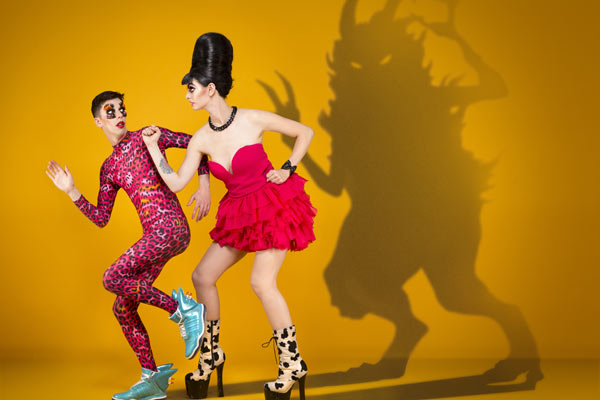“It’s been very exciting now in our second year to be curating what we think is certainly the best festival of its kind in the world, one of the greatest festivals of any kind, I think, in the world.”
What springs to mind first when you hear the word 'cabaret'? Cheesy? Hokey? 'Will and Grace'’s 'Just Jack' (cue jazz hands)?
If so, contemporary cabaret will surprise you, according to the Adelaide Cabaret Festival’s Co-Director and Director of the performance 'Brel', Ali McGregor.
“We’ve got a lot of people this year that are quite revolutionary in the art of cabaret. They’re changing the way that the genre is seen. It went through a period of being a little bit cheesy I guess, and being seen as something on cruise ships and divey piano bars. But in the last 10-15 years there’s been a neo-cabaret movement where people are really grasping that immediacy, that ability for it to be malleable, for you to actually tell your story in a very immediate and intimate way.”
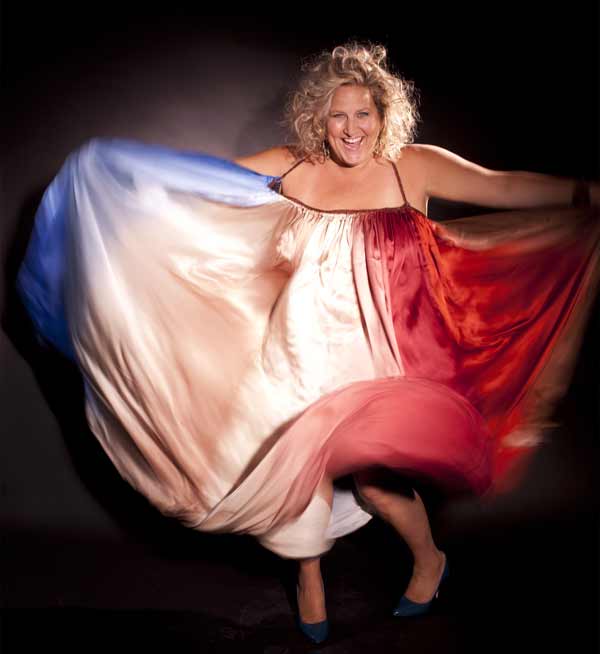 Bridget Everett
Bridget EverettThis year’s line-up is a testament to cabaret’s malleability, its ability to be edgy and exciting, McGregor says. “We’ve got some really great, exciting artists like Bridget Everett and 'Briefs' and Peter and Bambi, who are a bit anarchic and in some ways wouldn’t necessarily be seen as just typical cabaret performers... They’re really telling stories in a new way and bringing quite a new audience to the genre as well, which is pretty exciting.”
The Adelaide Cabaret Festival is an institution. Now celebrating its 17th year, it was started by Frank Ford as a vehicle to both showcase Australian talent and provide employments opportunities for creatives during a turbulent time in the industry.
The festival really took off, with mainstream luminaries such as Kate Ceberano and Barry Humphries taking on the Artistic Director mantel. McGregor and her co-Director Eddie Perfect are now serving their second year, and are embracing a new period of festival disruption. The theme for this year is 'The Tables Are Turning', reflecting both a change in their home venue, and broader global themes.
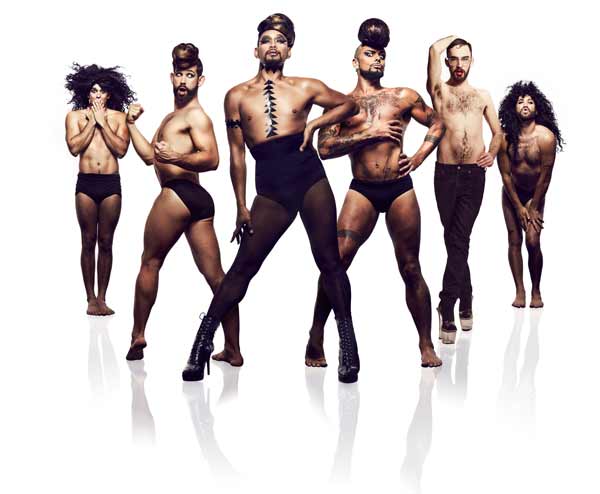 'Briefs' - Image © John Tsiavis
'Briefs' - Image © John Tsiavis“The Adelaide Festival Centre is going through huge transformations… This year it’s really been turned on its head so we decided to run with that element and create,” Ali explains. “It went hand-in-hand as well with lots of things that are happening in the world. There’s this sense that things are turning. There’s a slight revolution in the air, so we wanted to follow that with cabaret. ‘The Tables Are Turning’ was wanting to reflect that, wanting to reflect that the Festival Centre itself is turning on its head, and things are not going to be what people are used to there. But also, as I said, reflecting this underlying sense of revolution that we can see throughout the western world at the moment.”
McGregor believes that cabaret is particularly suited to responding to political or social themes. “We as artists are the canaries in the mine, if you will. And sometimes cabaret is at the forefront of that because it is a very immediate genre in that something can happen that day and because it is sort of a loose concept in that you’re not always tied down to a script, you can actually reference things that are happening that very day,” she explains. “Often especially if people are writing their own material they can write music that absolutely adheres to that, or they can find new colour or new tones in songs they’ve sung for years that suddenly seem to reflect what’s going on in the world in a very different light. So in that way I think we’re seeing the conversations that people are having around the dinner table are being had on stage as well.”
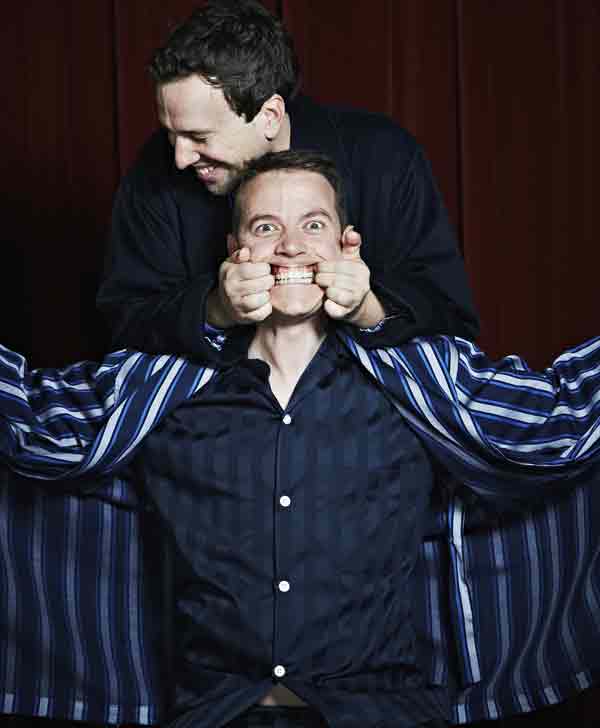 'Pajama Men'
'Pajama Men'This sense of social awareness is reflected not only in the material performed on stage, but also in the careful selection of acts. One thing cabaret is often associated with celebrating is sexual and gender diversity, and this year is no different. “Cabaret has been a safe place for people for a very long time, and especially for people with a fluid gender, and sexuality. That is nothing necessarily new, but I think the way in which they’re telling their stories has changed, and has opened up quite a lot.” That doesn’t mean the discussions are heavy, or conventional. McGregor cites cabaret’s storytelling flexibility as key to artists finding their own voices and communicating with the audience: “…an ability to have fun with it, and not necessarily telling their story in a very ultra-serious way,” she says. McGregor credits cabaret with giving artists “the ability to actually make fun of themselves and to have some license to tell their story in any way that they want to.”
However, McGregor says that cabaret has not always been linked to cultural diversity, but the festival is working to change that. “A lot of the time cabaret has been the realm of the middle class white kids telling their stories, and their stories are interesting and there’s lots to tell, and cabaret has always been filled with people telling stories of gender diversity and experiences growing up feeling different to other people, but they all have been very white middle class,” she reflects.
“But we have been trying to find as many people with different stories to tell and different voices. We haven’t quite achieved that this year but it’s something that we are really working towards and we’re seeking those sorts of artists and those sorts of stories.”
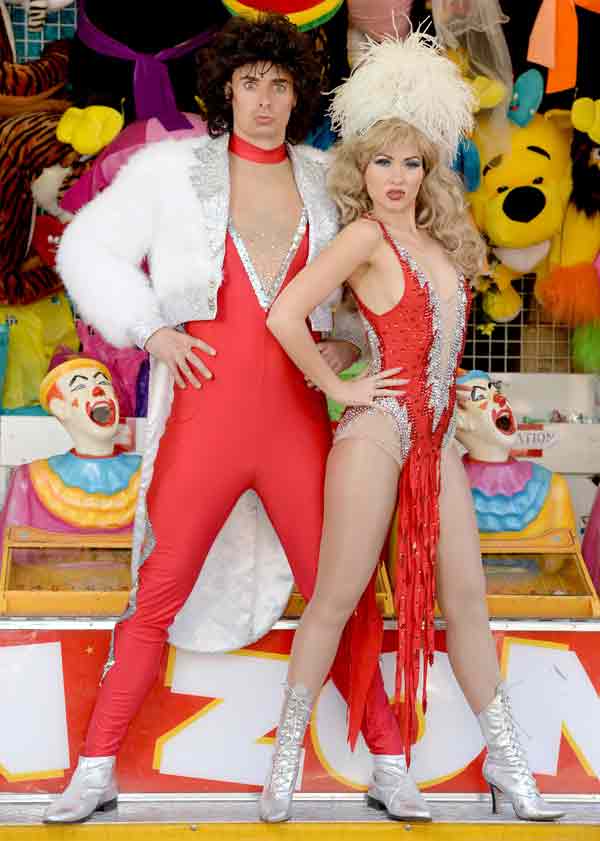 Peter And Bambi - Image © Simon Schluter
Peter And Bambi - Image © Simon SchluterCabaret’s ability to be responsive to social challenges should in no way be interpreted as an obligation. Festival goers can avoid politics completely if so inclined and all audience members will have a good time. Social commentary can be performed in sequins, after all.
Here are some of the festival’s highlights:
Bridget Everett – 'Pound It!'
“She’s not for the faint-hearted. You cannot go in there if you’re in any way going to be shocked about stuff, but she’s so comfortable with herself that it’s hard to be shocked by it… You will want to get motor-boated by her after the first half hour, and you probably will, to be honest.“Peter and Bambi – 'The Magic Inside'
“They’re playing a pair of Gold Coast magicians and it’s very hard to tell as an audience member how much of it is real and how much of it is fake… I wouldn’t say it’s a bad magic show, because there’s some really good magic in there, but, look, everything goes a bit wrong. There is a certain slapstick element to it that I just find so delightful… I just cried with laughter the entire time, it’s just so kind of wrong, and fabulous.”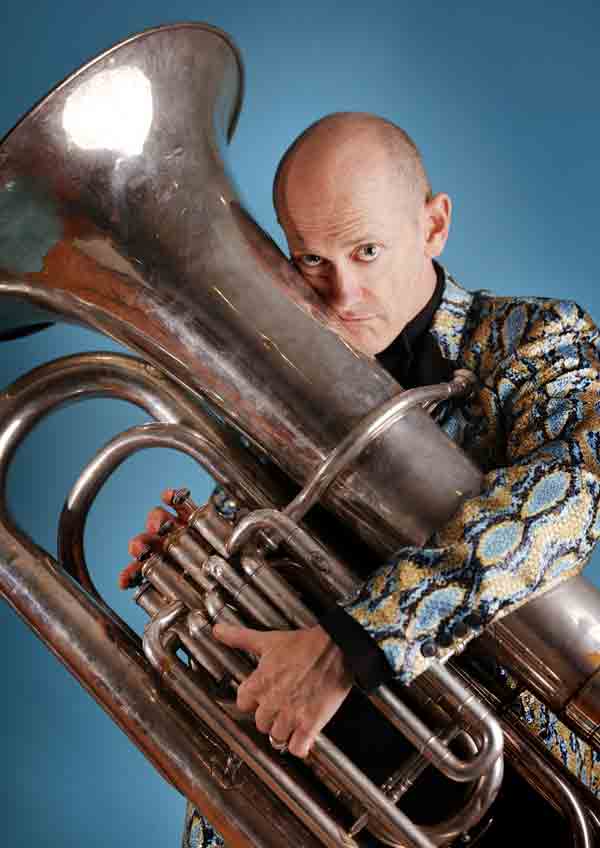 Simon Hall - Image © Nicole Cleary
Simon Hall - Image © Nicole ClearySimon Hall – 'Second Wedding Singer'
“Yon [Simon] is one of the three Tripod boys and I just love the concept of this, a wedding singer that specialises in second marriages. It was one of those pitches that I didn’t really need to know anymore, it was just like ‘Yep, bang. That’s awesome.’ I love Yon [Simon] and it’s just such a quirky idea, I can’t wait to see what he does with it.”Pajama Men – 'Pterodactyl Nights'
“They’re at the forefront of improv comedy. If you ask any sketch improv comedian on the circuit right now, ask them for one of their influences and the Pajama Men will come up. They’ve been hugely influential, but no one can really emulate them.”Briefs – 'Close Encounters'
"They’ve got a particular brand of masculine burlesque that is kind of gender non-specific in that it’s masculine because it has this power and strength, not because it’s necessarily 'boy-lesque' – because a lot of what they do is quite feminine in nature – but it has this strength. Fez as an MC makes fun of us as white culture in a way, he makes fun of us, he teases us, he’s irreverent and ballsy and just has a massive potty mouth… It’s burlesque like we haven’t seen before.”Bourgeois & Maurice – 'How To Save The World Without Really Trying'
“They talk a lot about what’s going on in the world, of politics and pop culture as well and how that’s affecting our discourse, but it’s done in an irreverent way. It’s as if they’re space aliens come to save earth… They work so well together: Maurice is kind of louche and distracted and Bourgeois is earnest and haughty… I just can’t wait for everyone to see this show.”Adelaide Cabaret Festival runs from 9-24 June.

